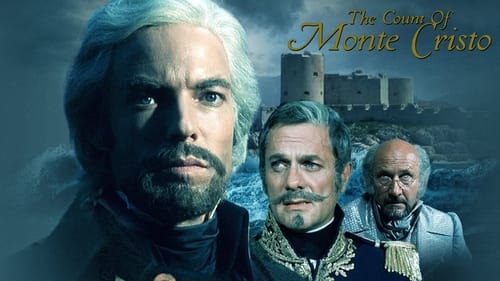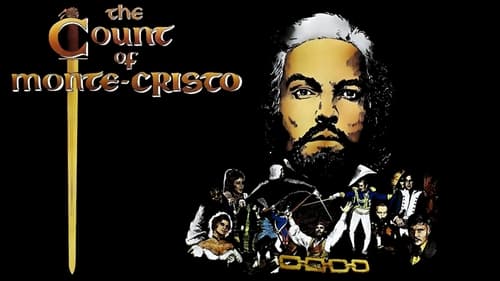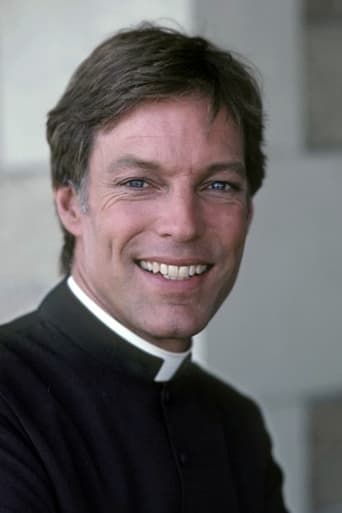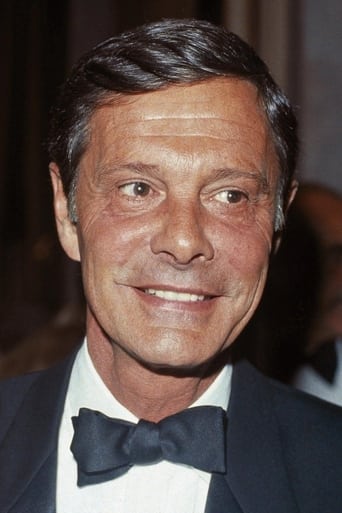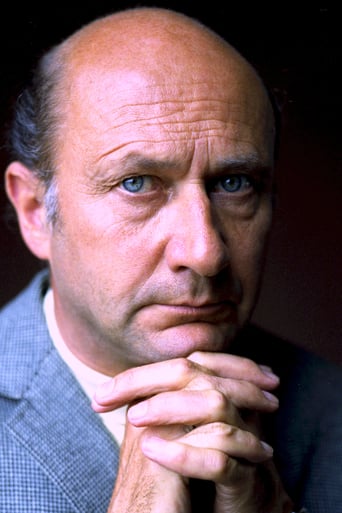silverscreen888
This is a made-for-television version of "Le Comte de Monte Cristo" which I believe qualifies as a masterwork. The feature was directed by David Greene and written by Sidney Carroll. Its basis is the famous adventure novel by Alexandre Duimas, the father. The feel of the piece is clean, to my eyes, the lighting very bright, the colors intense. I found it to be modern without committing in any sense a violation of its own century. Even those unable to understand something being of another age but not 'dated' can probably still enjoy what I regard as a very superior production of this classic story. The cinematography by Aldo Tinti I find to be memorable, as is the lyrical score by Allyn Ferguson. The attractive and varied settings within the production design done by Walter Patriarca as well as the art direction by Andrew Patriarca with Walter Patriarca are very much above-average even for theatrical-release films. Also, Olga Lehmann's costumes help to establish period and mood admirably in my judgment; the French period illustrated with its Empire dresses and fitted gentlemen's clothing photographed very nicely. The story is actually a fairly simple one. Edmond Dantes, a gifted and honest young seafarer has taken command of a ship belonging to his company and brought it home safely after the death of his captain. Betrayed by enemies he never knew he had, he is accused of the captain's death and taken away from the woman he loves, his life, his world and imprisoned for fourteen years. He at first fears he will go mad; then he is found by the Abbe Feria, who was tunneling to escape the island prison where he too has languished, but ended up in Dantes' cell instead. The two become fellow conspirators, and the learned cleric teaches Dantes all that he has missed in life as they work together to regain their freedom. He tells Dantes of a fabulous treasure on the Island of Monte Cristo, that they will be able to share someday. But he dies suddenly, after they have worked three years more; and Dantes barely escapes before the jailers come, with the map to the treasure and their tools. He returns to the cell where the Abbe's body has been sewn into a bag for disposal into the sea. Substituting himself after shifting the Abbe to his own cell, he waits. Thrown into the sea, he uses a knife to escape and survives the fall and near-drowning in good condition. It is his bad fortune to have to swim for hours before he can find so much as a floating log. Then they rescue him and take him in among them, for his knowledge of seamanship and more. He becomes a valued man, and learns that his father has starved to death during his absence. He vows revenge and seizes the means to it--the treasure of Monte Cristo. Recruiting loyal friends among the smugglers, he finds the five-centuries-old treasure. "The world is mine!" he cries. And with that, he becomes "The Count of Monte Cristo," one of the richest men in the world, a man who can have the revenge Edmond Dantes was denied by those whose business should have been justice. Four men are his target, the men who have profited from their evil deed against him. His sweetheart Mercedes has married one of the four and has a son; but even she fails to recognize him when he turns up as the darling of Paris, the most-sought-after man in French society. One by one, ensnaring them through their weakness and their lust for his unearned wealth, he causes them to be ruined or find death or a prison cell. He has become, in Mercedes' words, an 'avenging angel', no longer a man. But he is passionless about his pursuit of justice; it is for the viewer as if the innocent young Dantes were a man who had been done to death and as if he, the Count of Monte Cristo, were his separate champion exacting punishment for the man who is no more. But when he finishes, Mercedes does not see Edmond Dantes in him, only the vengeance seeker. This film is not about the power of wealth, but rather the wealth that power brings; for with cooperation, men ready to invest in one's schemes, men who can be bought or men who follow an opportunity, there is very little one cannot do. The flaw lies in a French society whose power-holders can be bribed and corrupted, not in the man who makes them offers they should refuse. I believe this to be far the best of the story's many versions. The cast is exceptional too for any film. Richard Chamberlain as the young Dantes, the prisoner, the smuggler, the avenger, the man is award caliber; he became "king of the TV mini-series" largely on the strength of this timeless performance. Among the men he seeks are Donald Pleasance, Tony Curtis and Louis Jourdan. As Mercedes, Kate Nelligan is lovely and suffers as well as she always does; her emotional range is admirably suited to the task of both losing Dantes and grieving over her threatened son, long after she has ceased to love her gamecock husband, Curtis. Trevor Howard is powerful and affecting as the Abbe Feria, lacking only enough lines to deserve awards for his work. Among the conspirators, Jourdan is coldly interesting, Pleasance admirably nefarious and Curtis, despite his accent problems, is energetic and intelligent. This is a film that I never miss, and I invite viewers to discover it. It is hard as a diamond, yet passionate, fast-paced and I suggest intensely-interesting at every point in its logical progression.
MartinHafer
The Count of Monte Cristo as well as The Man in the Iron Mask were both made for television in the mid to late 1970s and starred the talented Richard Chamberlain. Yet, because they were originally made for TV, they seem to have vanished and I haven't seen either on TV since the early 1980s (though I did copy them to now worn out videotapes). It's a real shame, as they were first-rate and every bit as good as any Hollywood production--maybe better.The Man in the Iron Mask was the better of the two stories, but both are about as good Alexander Dumas stories as you can find. This is due to the overall package--exceptional music, acting, writing and pacing. I simply don't know how you could have made them much better.
stills-6
As all movies made from books do, it simplifies the plot to a miniscule point and takes as much drama from it as it can. As a movie, this works surprisingly well. Chamberlain is excellent as the conflicted changeling, but others don't do so well. Tony Curtis has never been my favorite actor and Kate Nelligan doesn't have much screen presence. Watching Louis Jourdan try very hard to play to the camera is kind of sad, but Donald Pleasance is very good and almost steals scenes away from Chamberlain.Unfortunately, this is a TV movie (1970s), so the direction is awkward and stage-y. But a pretty good script and Chamberlain's performance make this a strangely compelling experience.


